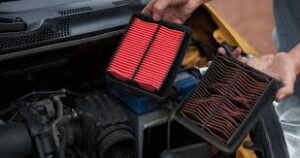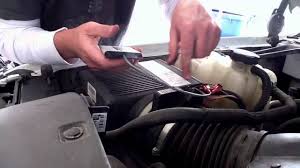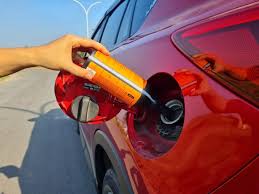In today’s world, fuel efficiency is more important than ever. With rising fuel prices and growing environmental concerns, many car owners are looking for ways to get the most out of every gallon of gas. Fortunately, there are several modifications you can make to your vehicle to improve its fuel efficiency. In this article, we’ll explore ten essential car modifications that can help you save money at the pump and reduce your carbon footprint.
1. Upgrade Your Air Filter

Enhanced Airflow
Upgrading your car’s air filter is one of the simplest and most cost-effective ways to improve fuel efficiency. High-performance air filters, such as those made from cotton gauze, provide better airflow to the engine, allowing it to breathe easier. This can result in a noticeable improvement in fuel economy.
Benefits:
- Increased horsepower
- Improved throttle response
- Longer engine life
2. Use Synthetic Oil
Superior Lubrication
Switching to synthetic oil can reduce engine friction and improve fuel efficiency. Synthetic oils are designed to flow more easily at lower temperatures, which means your engine doesn’t have to work as hard to pump the oil. This can lead to better fuel economy, especially in cold weather.
Benefits:
- Enhanced engine protection
- Reduced oil consumption
- Longer oil change intervals
3. Install a Performance Exhaust System
Improved Exhaust Flow
A performance exhaust system can help your engine breathe more efficiently by reducing backpressure and improving exhaust flow. This can lead to better fuel efficiency and increased horsepower. Look for exhaust systems made from lightweight materials, such as stainless steel, to maximize the benefits.
Benefits:
- Increased power output
- Enhanced engine sound
- Reduced weight
4. Use Low Rolling Resistance Tires
Reduced Energy Loss
Low rolling resistance tires are designed to minimize the energy lost as your tires roll along the road. These tires are made from special compounds and feature unique tread patterns that reduce friction and improve fuel efficiency. While they may cost more upfront, the fuel savings can quickly offset the initial investment.
Benefits:
- Improved fuel economy
- Longer tire life
- Enhanced handling
5. Install a Fuel Economy Chip

Optimized Engine Performance
Fuel economy chips, also known as performance chips, can optimize your engine’s performance by adjusting the air-fuel ratio, ignition timing, and other parameters. These chips can help your engine run more efficiently, resulting in better fuel economy. Be sure to choose a chip that is compatible with your vehicle and have it professionally installed.
Benefits:
- Increased fuel efficiency
- Enhanced engine performance
- Customizable settings
6. Upgrade Your Spark Plugs
Better Combustion
Upgrading to high-performance spark plugs can improve the combustion process in your engine, leading to better fuel efficiency. Iridium or platinum spark plugs are more durable and provide a stronger spark, which can help your engine burn fuel more efficiently.
Benefits:
- Improved fuel economy
- Increased power output
- Longer-lasting spark plugs
7. Use Lightweight Components
Reduce Vehicle Weight
Reducing the overall weight of your vehicle can significantly improve fuel efficiency. Consider replacing heavy components, such as steel wheels or bulky body panels, with lightweight alternatives made from aluminum or carbon fiber. Every pound you shed can help improve your car’s fuel economy.
Benefits:
- Improved acceleration
- Enhanced handling
- Better fuel efficiency
8. Maintain Proper Tire Pressure
Optimal Rolling Resistance
Maintaining the correct tire pressure is crucial for fuel efficiency. Under-inflated tires create more rolling resistance, which forces your engine to work harder and use more fuel. Check your tire pressure regularly and keep it at the recommended level to ensure optimal fuel economy.
Benefits:
- Improved fuel efficiency
- Enhanced tire life
- Better handling and safety
9. Install a Cold Air Intake
Increased Airflow
A cold air intake system can improve your engine’s efficiency by allowing it to take in cooler, denser air. This can lead to better combustion and improved fuel efficiency. Cold air intakes are relatively easy to install and can provide a noticeable boost in performance.
Benefits:
- Increased horsepower
- Improved throttle response
- Enhanced fuel economy
10. Use a Fuel Additive

Clean and Efficient Engine
Fuel additives can help keep your engine clean and running efficiently. These additives work by removing deposits from the fuel injectors and combustion chambers, which can improve fuel economy and reduce emissions. Be sure to choose a high-quality fuel additive and use it as directed.
Benefits:
- Improved fuel efficiency
- Reduced emissions
- Enhanced engine performance
Conclusion
Improving your car’s fuel efficiency doesn’t have to be complicated or expensive. By making a few key modifications, you can enjoy better fuel economy, save money at the pump, and reduce your environmental impact. Whether you choose to upgrade your air filter, switch to synthetic oil, or install a performance exhaust system, each modification can contribute to a more efficient and enjoyable driving experience. Start with these ten essential car modifications and watch your fuel efficiency soar in 2024.

